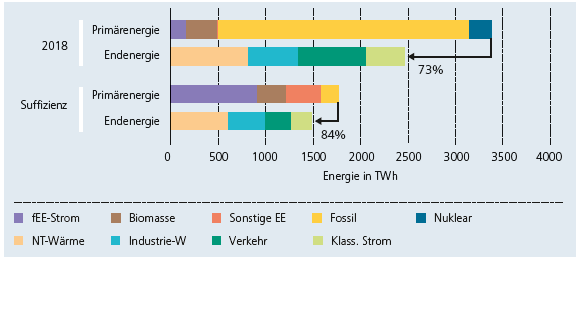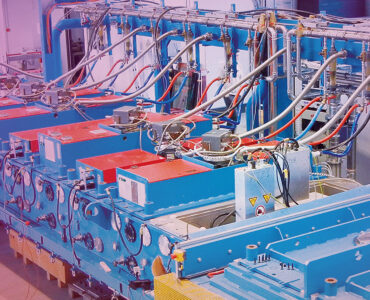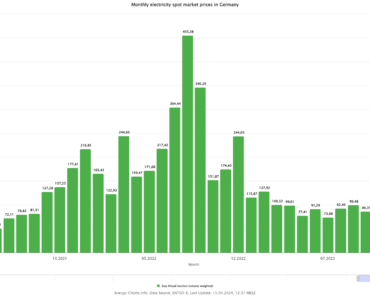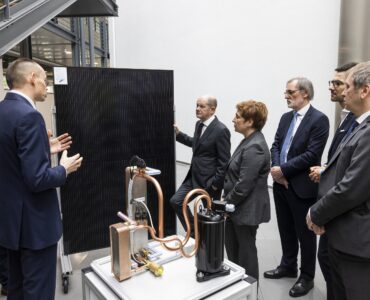This scenario assumes that enough of us become so aware of climate change and the need for a climate-neutral energy system that we are prepared live more economically.
What needs to happen by 2050 to reduce our CO2 emissions from transport, electricity, process and building heating by at least 95%? The study “Ways to a Climate-Neutral Energy System” by our institute provides an encouraging answer to this question: In principle, it is technically feasible to secure the energy supply in Germany with renewable energies. How expensive and complex this will be depends on each and every one of us. In order to better understand how exactly, we have used various scenarios to simulate the consequences of our behaviour on the course of the energy transition.
One of these scenarios assumes that movements such as “Fridays For Future” or increasing extreme weather events will make many of us so acutely aware of climate change that we are prepared to change our everyday behaviour. For example, less flying, less driving, buying energy-saving appliances and consuming less. In concrete terms, we have assumed for our calculations that
- our electricity consumption in Germany will fall by 45 percent compared to today,
- we will drive cars about a third less often
- and only fly half as often.
In addition, in this simulation of the future, we at Fraunhofer ISE are counting on the fact that our heat requirements will also decrease because more and more houses are being renovated and industry is using heat more efficiently in its production.
Sufficiency scenario: What happens if we as a society reduce our energy consumption?
1. Germany’s total energy consumption falls by 40 percent by 2050
According to our study, this is the most central effect of the behavioral changes just described: Final energy consumption in 2050 would be only 60 percent of what we currently need. In the graph you can see that our energy system would then only have to provide just under 1500 TWh of final energy instead of 2500 TWh in 2018 (the conversion of primary energy, i.e. energy before losses, to the final energy that can actually be used will also become much more efficient through the electrification of heating and transport). A large part of this would be generated by the renewable energies of the sun and wind (fEE-electricity).

2. The replacement rates of cars and heaters are falling
To replace the large CO2 generators in transport, industrial and building heating, we need to replace fossil fuel vehicles with electric cars, trains and urban transport. We also need to replace gas and oil boilers with heat pumps and other sustainable cooling and heating technologies. If we manage to drive fewer cars and at the same time are prepared to insulate our homes, we will have more room for improvement compared to the other scenarios to cope with the more difficult to achieve CO2 reductions in the other sectors.
3. The cost of rebuilding the energy system falls
The reduction of consumption naturally leads to cost savings. Our research team itself was surprised how much cheaper the German energy turnaround will be if we are all prepared to consume less. The biggest cost driver of the energy turnaround is the investment in the new system. If we have to build fewer solar and wind power plants, electricity storage facilities, distribution networks, train lines, etc. overall, this will save a lot of money. To be more precise: €1,140 billion compared to the reference scenario, in which we have also simulated in a cost-optimized way, but assume that our current consumption and mobility behavior will not change as much. In the steady-state scenario, we break down the costs once again in greater detail.
When politicians and scientists preach renunciation in the name of climate protection, it sounds exhausting. The sufficiency scenario of our study shows two things: Firstly, the austerity measures do not have to be all that radical in order to achieve major effects. Secondly, it is also an enormous effort to restructure our energy system in such a way that it is CO2 neutral and at the same time satisfies our growing hunger for energy. All of a sudden, focusing on important things in (energy-consuming) activities no longer seems so exhausting.
| What do you think which path Germany’s energy transition will take? Let us know and take part in our survey on the study. |














Add comment